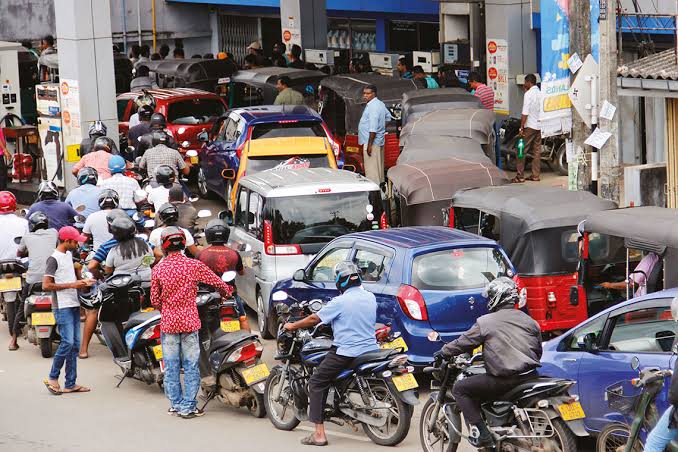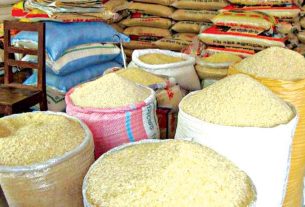As the conflict between Iran and Israel continues to disrupt global oil markets, fuel marketers have urged the Federal Government to implement urgent measures to prevent petrol and diesel prices from becoming unaffordable for Nigerians.
Although crude oil prices dropped below $70/barrel on Tuesday, the recent sharp rise in their costs, driven by tensions in the Middle East, had already begun to reflect in the domestic market.
While the recent price increase before Tuesday’s drop offered a potential boost to the government’s oil revenue projections of $75 per barrel benchmark, it also led to higher costs of refined petroleum products from key suppliers, including the Dangote Petroleum Refinery.
With crude prices rising from around $66 to nearly $80 per barrel recently, before the slide on Tuesday, analysts warn that Nigerians may face pump prices exceeding N1,000 per litre, unless proactive steps are taken.
As a result, marketers are calling on the administration of President Bola Tinubu to introduce mechanisms that would ensure the affordability of fuel, especially for low-income earners.
They recommended that the Presidential Committee on the naira-for-crude initiative should peg the price of crude oil allocated to domestic refineries at levels that enable cost-effective production.
According to stakeholders, making crude available at discounted rates to local refiners could ease the burden on citizens and reduce the risk of inflationary pressures triggered by rising fuel costs.
The recent surge in global oil prices follows a new wave of hostilities in the Middle East, including reported airstrikes on Iranian nuclear sites by the United States, raising fears of prolonged instability and further supply disruptions.
Fuel marketers warned that, without government intervention, the ripple effects could undermine economic recovery efforts and deepen the hardship faced by millions of Nigerians, especially at a time inflation rate was subsiding.
Speaking in an interview with our correspondent, the National Vice President of the Independent Petroleum Marketers Association of Nigeria, Hammed Fashola, said fuel could go far above N1,000 per litre if the war in Iran continued to escalate, especially as the United States bombed Iran’s three nuclear sites on Saturday.
According to Fashola, the Federal Government needs to make more crude available to the 650,000-capacity refinery to ease the burden on the masses.
The IPMAN VP maintained that the crude oil set aside for local consumption should be sold to local refineries at an agreed rate by all parties, and the product should be sold locally at a reduced price.
“This is the time to take advantage of the Dangote refinery. The government needs to work closely with Alhaji Aliko Dangote. This is the time we need the naira-for-crude deal mostly. The Federal Government needs to sit with Dangote and agree on a particular price because if they continue to follow how the crude price is going up, I don’t think average Nigerians will be able to buy petrol again. But let’s thank God for Dangote,” Fashola said.
The IPMAN leader said the government should strengthen the naira-for-crude arrangement for the sake of the masses.
“The government and local refiners, especially Dangote, need to work out modalities to see how they can improve on the existing arrangements. If they can do that, it will help mitigate the impact of the crude surge. But if we are to follow the international crude oil prices, it is going to affect the populace, and I don’t think any average Nigerian will be able to afford fuel anymore.
“This will lead to energy poverty, and inflation could rise again. It is only the Federal Government that can save Nigerians now. They need to peg the crude price at a particular price for Dangote so that we can sustain what we have,” he stressed.
Speaking further, Fashola maintained that the Federal Government should ramp up crude production, saying this was the only way to have enough for local consumption and exports.
He charged the new board of the Nigerian National Petroleum Company Limited to roll up their sleeves and produce more oil for the country while revamping the nation’s refineries.
“The Federal Government needs to look at the volume they are giving to Dangote, it should be increased. Crude production has to be looked into. We need to ramp up production. This is very important. If we have enough crude, we won’t have crude shortages; the country will have enough to export and sell locally. The new board of the NNPC has a lot to do.
“The board should also strive to revamp its refineries. This is very important. If the refineries are working, there will be enough fuel supply for Nigerians, importation will reduce, and there will be healthy competition,” he stated.
Fashola told The PUNCH that marketers had been battling price volatility since January, saying retailers were trying to adjust to the current situation.
“We have been on this price volatility since January, and we are getting used to it. We have to adjust to the situation. The depot prices have changed, the Dangote refinery has increased prices, and we don’t have any choice but to increase our prices too,” he said.
Meanwhile, an official of the Dangote refinery told our correspondent that the country’s low crude oil production was a challenge.
The official, who pleaded anonymity due to the sensitivity of the matter, said the refinery would be ready to work with the government if it made known its decision to boost the naira-for-crude deal.
The source added that the Dangote refinery was established to give Nigerians and Africans energy security and affordable rates.
Meanwhile, experts have said Nigeria would make more revenue to fund its 2025 budget with the rise in crude prices, but this could spell doom for an average Nigerian whose livelihood depends on oil.
Recall that the Crude Oil Refinery Owners Association of Nigeria once appealed to the Federal Government to approve a special exchange rate for local crude sales to local refineries.
The Punch





